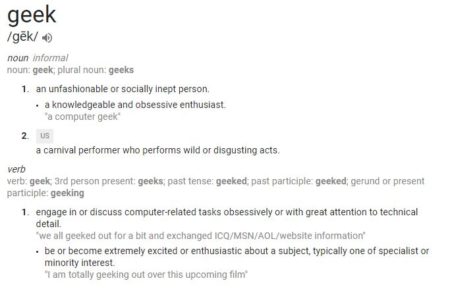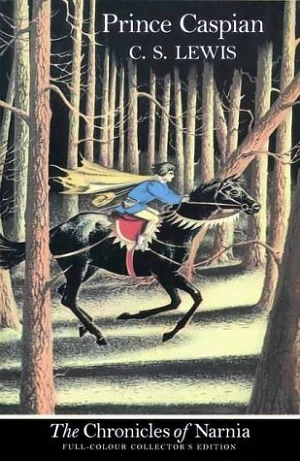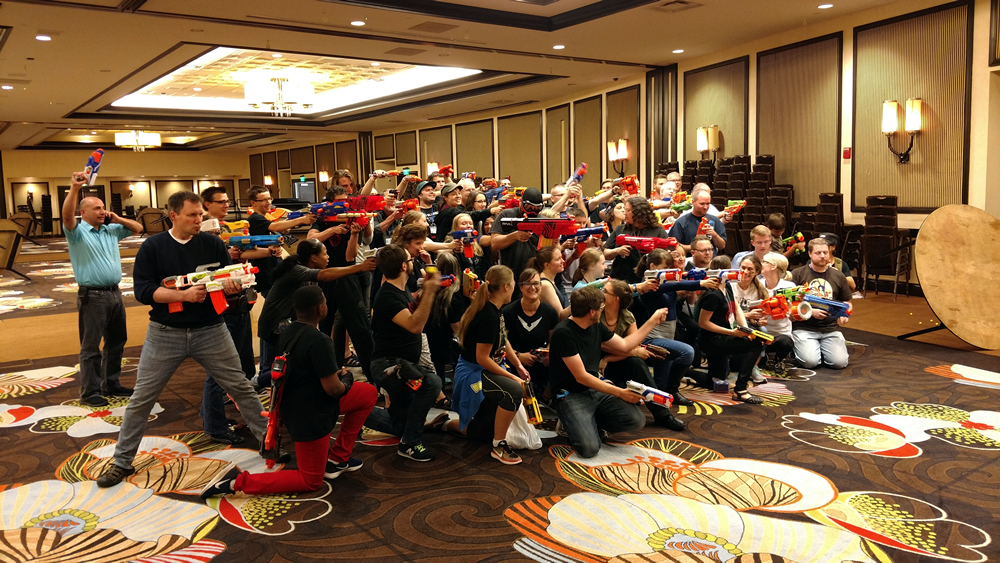Should Christian Fans Call Ourselves ‘Geeks’?
All “geeks” are fantastic story fans. But not all fantastic story fans are geeks.
And when we as Christians-who-are-fans speak of being “geeky,” or fully embrace the “geek” identity by name, we risk accidentally sidelining other family members.
Cases in point: my friends Mike Duran, Rebecca LuElla Miller, and Adam Graham.
After the Realm Makers conference, Mike shared his reaction:
I like a lot of the same characters and stories my fellow writers like. Star Wars. Star Trek. X-Men. Captain America. The Flash. Harry Potter. Vampires. Werewolves. I’m into all that stuff…. I’m just not SO into them that I want to dress up as a Jedi Knight, a Transformer, or a zombie and memorize the canonical histories of said characters.
 Rebecca flashes back to the shifting definition of the term “geek” and notes:
Rebecca flashes back to the shifting definition of the term “geek” and notes:
My passion is more for making Christ known, and if that happens in a contemporary novel or a mystery or romance, then I am just as happy to tell others about those books. I have no burning desire to read a book just because it is speculative.
Adam points to real-world constraints on someone trying to be “into all things geeky”:
Even if you are the stereotypical doesn’t go to work and lives in parents basement eating junk food sort of geek, you can’t be into “all things geeky.” I’m certainly not into “all things geeky.” Like most geeky people (particularly those who practice the ancient art of employment,”) I’m a specialist.
I can empathize with this, more so in the past than the present. Right now, even the anime people have gotten to me. I’ve seen nearly every episode of every Star Trek series. I read more fantasy and science fiction. I’m getting comfortable with the whole “cosplay” thing. But back when I’d started, other fans were running rings around me.1
Yet in all of our public thoughts on the label “geek,” I detect one common factor.
Everyone is asking the question, “Do I belong among Christians who are fans?”
Clearly, even in a group designed to find all the people with “different” interests, one very human problem recurs: people will still sense they are different from others.
Even in groups, conferences, and internet communities, the “cool” people seem to rise to the top. And “uncool” people—people who may prefer football over Star Wars, or prefer Christian “clean” fantasy over edgy speculation—will be left asking this same question:
‘Do I belong among Christians who are fans?’ Simple answer: Yes.
If you are a Christian, and a fan of any fantastic story, yes, you belong in the community of Christian fans. This is because you’re more than a fan, or a “geek,” or even an evangelist, or even a Christian. You have worth not just because “God made you special and he loves you very much,” but because He imprinted you with His very image, the imago Dei.
This means you were made to reflect God back to him. Yes, that reflection was broken by sin. But if you believe in Jesus your savior and want to love Him more than your own sin, then Jesus, the “image of the invisible God,”2 repairs this image.
 That’s good theology. And good theology alone can help fix our self-image problems: which include either self-exaltation or self-despising. As Narnia’s great lion Aslan would say:
That’s good theology. And good theology alone can help fix our self-image problems: which include either self-exaltation or self-despising. As Narnia’s great lion Aslan would say:
“You come of the Lord Adam and the Lady Eve. … And that is both honour enough to erect the head of the poorest beggar, and shame enough to bow the shoulders of the greatest emperor on earth. Be content.”
Humans are united in this God-given ancestry. Redeemed humans are also united in Jesus’s family. We’ve become one in the Church. This ought to shape our questions of belonging.3
If we’re united as Christians and fans, should we use the label ‘geek’?

If Christians, who enjoy fantastic stories, gather together to learn and explore and simply delight in Jesus and His gifts of these stories, what should we call ourselves if not “geeks”?
Many websites happily adopt the label, such as Christian Geek Central and Geekdom House.4
For my part, I’m agnostic about the term “geek.”
To me, the label “geek” still holds a few bad associations:
- Geeks may obsess about stories’ minutiae, and rank those who don’t as “lesser” geeks.
- They may form cliques and celebrity-worship among themselves, just like any humans.
- Geeks may value “weirdness” for its own sake, without recognizing that most of the human race has enjoyed supernatural or weird stories for thousands of years. In fact, this impulse is how we got our other (false) religions. So there’s no hipster-movement pride in enjoying fantastic stories. In fact, this is a mainstream human preference.
- Geeks may value arguably shallow entertainment over transcendent ideas, and even over the transcendent Person, Jesus Christ. (And thus some in the geek community can fall right back into the kind of partisan, legalistic religion you’d think they’d rejected.)
But to me, the label “geek” also makes me think of good associations:
- Geeks may take their enjoyment of long-form, complex stories, and turn this pursuit toward identical enjoyment of long-form, complex ideas, even biblical doctrine.
- Geeks appropriate what used to be a negative label, or slander, and “redeem” it with joy. At cons and groups, “geeks” may welcome, and not reject, other strange people.
- Geeks may understand and embrace the value of feeling peculiar, strange, or weird. This is a vital calling for Christians to follow, over the need to feel accepted, proper, or relevant.5
- Geeks may find freedom, not legalistic religion redux, in their enjoyments. For the “Christian geek,” or Christian fan, they may see Jesus and the gospel made “fresh” by some of their favorite stories, and be drawn closer to biblical truth and His grace.
Among people who share my negative ideas, I wouldn’t use the label “geek.” I’d rather more people see that fantastic-story enjoyment is no novelty for this generation. It’s a shared human experience that unites us, and should draw us closer to our fantastic Creator.
But among people who share my positive ideas, I would use the label “geek.” I’d rather more people see that Christians should naturally feel strange and a little awkward for believing this faith and worshiping a resurrected Jewish carpenter from the first century. And I’d rather we feel united in “geeky” love for this Story-of-stories, above all others.

Sign up for updates about our new book-club-starting magazine at Lorehaven.com (soon to be integrated with Speculative Faith’s website).
Which leads me to answer Rebecca’s great thought at the end of her Monday article:
I think of this in particular because of the launch of the new magazine, Lorehaven which intends, among other things, to create book clubs among Christians in churches. I’m not sure “come join our geekiness” will win a lot of people to such an endeavor.
“Come join our geekiness” may draw a few people to a Lorehaven book club. But not all.
If you start a book club—watch for updates about how!—your group’s mileage may vary.
Yet for my Lorehaven book club, coming this September, I doubt I’ll use the term a lot. I’d rather show I love these stories because they help me love my Savior. And I’d rather show that “being a geek” is no strange novelty. Rather, humanity’s natural-born love for fantastic stories should unite all persons who love Jesus more than such stories—whether or not they cosplay, swap superhero trivia, or act holier-than-thou in any particular fandom.
- In early to mid-2000s, even among Christians, I felt I knew more about biblical ideas and doctrine than about the actual cultures and processes of a local church. I’ve come to see this may give me a strange combo knowledge both inside and outside of American cultural Christianity. ↩
- Colossians 1:15 ↩
- This truth should also challenge some persistent notions that people who love Jesus can safely disobey Jesus’s desire, often shared by His apostles, that we ought to organize. We ought to form and join assemblies of believers who teach, praise, and work together. We can’t find this unity, and community, in groups or movements that exist apart from visible, local, and yes, institutional local churches. That’s a very bodiless, even Gnostic way to live. Yes, as we often say, “the church is more than a building.” Similarly, you are more than your body. But that’s no excuse to expect you’ll go floating about in bodiless eternal bliss someday, any more than you can expect to go floating about a physical-church-gathering-less spiritual life today. The church is more than a building. But humans need buildings and we need organization. Organized religion can be bad; disorganized religion is even worse. ↩
- On my original use of “happily,” see this disclaimer in the comment below by Christian Geek Central founder Paeter Frandsen. ↩
- As Russell Moore notes, “When identifying as a Christian, there’s an oddness and strangeness to the claim in some places. … But the conception of Christianity as a strange thing is a good thing for the gospel because it lines up with what the gospel is.” See “Russell Moore Wants to Keep Christianity Weird,” Sarah Pulliam Bailey, Christianity Today, 8, 2015. ↩









































See, I was a geek before I was a Christian.
If you’re saying that Lorehaven will pretend that they don’t benefit from genres that the House of Geek built, I find that kind of disrespectful. The speculative fiction genres are part of the geek culture heritage – and it’s absurd that folks like Mike Duran want to distance themselves and remain aloof from the geek fandoms from which they benefit. “I’m not with them. Too cool. Not THAT into it,” because… (geek) is still a by-word, right?
It’s not cool. Not even a little bit. Geeks take our fandoms seriously. To have someone sit by and say that they’re “not SO into” my geek culture feels like they think their attitude is more reasonable. It feels snobbish. It feels especially insulting when you write speculative fiction to feed those geekdoms but pretend like it’s about the Gospel… when these same authors also write a lot of criticism of messages (and dare I say sermonizing) in speculative fiction and reduce Christian speculative fiction to speculative fiction written by Christians from a Christian worldview (whatever that means).
Maybe that’s the real problem. They’re Generalists in all regards. They don’t delve too deeply into geek culture. They don’t even want to be overtly Christian. Except in a general sense that they will defend as above criticism.
Me? I was a geek before I was a Christian. This is my turf. I’m not faking and I’m not dabbling. I’ve cosplayed and will be happy to shame Mike Duran for being too cool to do so, especially when he’d make such a great chubby version of Keiffer Sutherland’s David (The Lost Boys).
My advice to Geek Generalists who benefit from geek culture as authors is “S#!@ or get off of the pot.” Shut up about it (because, yes, it is insulting to hear you brag about how you’re into it but only reasonably so – and, yes again, that IS how it comes off) or embrace it. Who knows? You might even like it.
But it almost doesn’t sound like Lorehaven is going to be for geeks like me. And if that’s the case, I gotta ask: What kind of book clubs are you thinking you’re going to form exactly? Do you really suppose that the Generalists care enough about fandoms to form any kind of club because they’re passionate about the fandom sort of, but not SO much?
I’m hoping that I’m wrong about Lorehaven. I’m hoping it caters more to Geeks than Generalists because, frankly, that’s not just my market. That’s not just my audience. That’s my people.
Until we reach The Last Door,
Tony Breeden
TonyBreedenBooks.com
PS. I’m looking at the Lorehaven site and there is this sentence: “Learn from other fanservants.” What the Christianized double hockey sticks is a #fanservant??? Is it like a geeky manservant? I don’t like it.
“Fanservant”? That’s…..unfortunate. Maybe it’s just me (it won’t be just me), but that word is entirely too close to “fanservice.”
Am now immaturely speculating on whether Lorehaven will have a centerfold pinup. Top Ten list of hottest characters? Quiz: What kinky reading position should you try? lolololol
I decided this needed an official response: http://tonybreeden.blogspot.com/2017/08/lorehaven-and-why-geek-matters.html?m=1
I’m not sure what you’re responding to, but it isn’t this article. Please re-read it. And please feel free to ask any questions you have about the mission and intended audience of Lorehaven. Thanks, Tony.
Thanks for sharing your thoughts on this!
For the record, I wouldn’t describe my mood in adopting the word “Geek” for Christian Geek Central as “happily”. From day one up to now I’ve actually had mixed feelings about it, though conclude that the pros outweigh the cons. Some of my recent public remarks on the topic can be found in the following video, beginning at the 8:25 mark.
-Paeter Frandsen
Thanks for your observation, Paeter! I for one think the term works perfectly for what you’re accomplishing and the types of folks you’re reaching. Can you recall whether the pros-over-cons were similar to my lists above, or were there other pro/con associations you had to work through while choosing the name?
The main hesitation I had (expressed in that video link) was that I didn’t want to encourage any Christians to think of “Geek” as their defining identity. But in the end “Geek” just works too well as a short hand.
So as I was reading this post, all I could think was, only a “geek” would thoroughly read it and worry about the subject. 😉
But it got me thinking and wondering how much of the ideas behind geek is a generational thing so I spoke to my 15-yr-old niece about it. She said, “I think it depends on the person. Some people see it as negative but others really like it. I personally don’t really care about it, if someone were to call me a geek I’d just ignore it. I think it just means someone who likes things like comic books, video games, Sci-fi, things like that. Frankly, I don’t think most younger people would care much.” We discussed it some more and concluded a good way to look at it is that in some ways we’re all geeks. Just about different things. She’d consider herself a Kpop-geek while I can be a bit of an Asian drama-geek. Her sister’s a book-geek, my daughter’s an anime-geek. Others are comicbook-geeks, DC or Marvel Geeks, Trekkie geeks, Star Wars geeks… There are football geeks, cooking geeks, sewing geeks – the labels go on and on. So if you think about it that way – geek kinda just means a person with interests and since it applies to everybody, it becomes redundant.